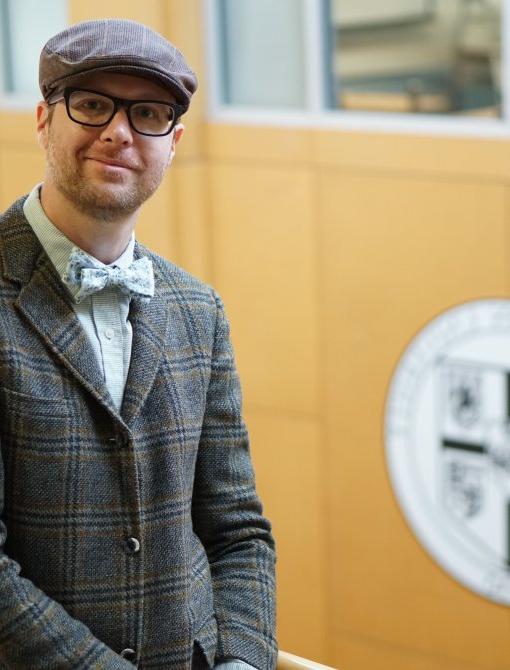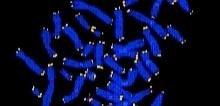Post-baccalaureate level courses at 最靠谱的网赌软件 are designed to provide the fundamental principles, advanced applications and laboratory skills needed for molecular diagnostic and molecular biology procedures conducted in a clinical or research environment.
关于项目
The program is intended for those individuals with a baccalaureate degree in biology, 化学, health sciences or related health and scientific disciplines that wish to enhance their laboratory expertise and knowledge in molecular-based methods. The coursework will provide solid didactic preparation for those qualified individuals seeking certification in molecular pathology by the American Society for Clinical Pathology (ASCP) or in molecular biology by the National Credentialing Agency for Laboratory Personnel. It will also convey valuable background foundation and training for graduate or BS level students in biology/related fields who seek employment in basic science, 生物技术, pharmaceutical and clinical diagnostic laboratories.
The program consists of lecture-based instruction and hands-on laboratory sessions and internships in molecular diagnostic laboratories. Classroom lectures and laboratory sessions are offered in the evening to accommodate schedules of working professionals. 对于证书, students must complete at least 12 credit hours of the molecular diagnostics courses described below with a 3.平均绩点0.
| 秋天 | ||
|---|---|---|
| 500年联合化疗 | Principles of Molecular Pathology and Clinical Diagnostics | 3.0学分 |
| 501年联合化疗 | 分子诊断 Laboratory | 3.0学分 |
| 春天 | ||
| 600年联合化疗 | Advanced Clinical Applications of 分子诊断 | 3.0学分 |
| 601年联合化疗 | Advanced 分子诊断 Laboratory | 3.0学分 |
| 650年联合化疗 | Clinical Internship in 分子诊断 | 3.0学分 |
500年联合化疗 Principles of Molecular Pathology and Clinical Diagnostics. Lecture 3 hrs; 3学分. Prerequisite: BIOL 250, 251; CHEM 311, 312, or permission of instructor. Basic concepts of molecular pathology & clinical diagnostics including nucleic acids, 染色体, DNA复制, 转录, 蛋白质, 突变 & chromosome changes that underlie inherited & acquired/infectious disease, inheritance patterns & genetics as applied to oncology, cardiac disease & 器官移植. Covers emerging molecular/cytologic/histologic methods (amplification, hybridization & microarrays) to detect disease markers, monitor therapy & assess identity; pharmacogenomics & legal/ethical issues of genetic testing
501年联合化疗 分子诊断 Laboratory. Lecture 1 hr, Laboratory 4 hrs; 3学分. Co-requisite: 500年联合化疗 or permission of instructor. Course includes hands-on experience with or discussions of diagnostic instrumentation and assays using nucleic acid and protein extraction, 凝胶电泳, 杂交技术, PCR and other amplification methods, DNA测序, 放射自显影法, 流式细胞术, microarrays and proteomics-based methods.
600年联合化疗 Advanced Clinical Applications of 分子诊断. Lecture 3 hrs; 3学分. Prerequisite: 500年联合化疗, 501 or permission of instructor. Course will cover 1) new applications of standard molecular diagnostic techniques and 2) cutting edge technologies, instrumentation and technical advances, both as applied to clinical case studies. Emphasis will be on pharmacogenomics and disease processes, including inherited conditions, 癌症, hematopathology, 传染病, mental retardation and developmental delay. Innovative technologies covered include comparative genomic hybridization and next-generation sequencing.
601年联合化疗 Advanced 分子诊断 Laboratory. Lecture 1 hr, Laboratory 4 hrs; 3学分. Prerequisite: 500年联合化疗, 501 or permission of instructor. Emphasis of this course will be on primer design for PCR, 高级实时PCR, 周期序列, capillary electrophoresis (CE) as applied to DNA测序, analysis of SNPs (single nucleotide polymorphisms), microsatellite instability, single strand conformational polymorphism (CE-SSCP) and other conditions.
650年联合化疗 Clinical Internship in 分子诊断. 3学分. Prerequisite: 500年联合化疗, 501, 600 and 601. An optional three-week supervised rotation in a hospital-based or clinical molecular diagnostics laboratory.
All interested applicants should email Dr. 罗伯特·布鲁诺 (below) or Dr. 帕特里克·萨克斯 (below) for guidance through the application process.


The program consists of lecture-based instruction and hands-on laboratory sessions and internships in molecular diagnostic laboratories. Classroom lectures and laboratory sessions are offered in the evening to accommodate schedules of working professionals. 对于证书, students must complete at least 12 credit hours of the molecular diagnostics courses described below with a 3.平均绩点0.
| 秋天 | ||
|---|---|---|
| 500年联合化疗 | Principles of Molecular Pathology and Clinical Diagnostics | 3.0学分 |
| 501年联合化疗 | 分子诊断 Laboratory | 3.0学分 |
| 春天 | ||
| 600年联合化疗 | Advanced Clinical Applications of 分子诊断 | 3.0学分 |
| 601年联合化疗 | Advanced 分子诊断 Laboratory | 3.0学分 |
| 650年联合化疗 | Clinical Internship in 分子诊断 | 3.0学分 |
500年联合化疗 Principles of Molecular Pathology and Clinical Diagnostics. Lecture 3 hrs; 3学分. Prerequisite: BIOL 250, 251; CHEM 311, 312, or permission of instructor. Basic concepts of molecular pathology & clinical diagnostics including nucleic acids, 染色体, DNA复制, 转录, 蛋白质, 突变 & chromosome changes that underlie inherited & acquired/infectious disease, inheritance patterns & genetics as applied to oncology, cardiac disease & 器官移植. Covers emerging molecular/cytologic/histologic methods (amplification, hybridization & microarrays) to detect disease markers, monitor therapy & assess identity; pharmacogenomics & legal/ethical issues of genetic testing
501年联合化疗 分子诊断 Laboratory. Lecture 1 hr, Laboratory 4 hrs; 3学分. Co-requisite: 500年联合化疗 or permission of instructor. Course includes hands-on experience with or discussions of diagnostic instrumentation and assays using nucleic acid and protein extraction, 凝胶电泳, 杂交技术, PCR and other amplification methods, DNA测序, 放射自显影法, 流式细胞术, microarrays and proteomics-based methods.
600年联合化疗 Advanced Clinical Applications of 分子诊断. Lecture 3 hrs; 3学分. Prerequisite: 500年联合化疗, 501 or permission of instructor. Course will cover 1) new applications of standard molecular diagnostic techniques and 2) cutting edge technologies, instrumentation and technical advances, both as applied to clinical case studies. Emphasis will be on pharmacogenomics and disease processes, including inherited conditions, 癌症, hematopathology, 传染病, mental retardation and developmental delay. Innovative technologies covered include comparative genomic hybridization and next-generation sequencing.
601年联合化疗 Advanced 分子诊断 Laboratory. Lecture 1 hr, Laboratory 4 hrs; 3学分. Prerequisite: 500年联合化疗, 501 or permission of instructor. Emphasis of this course will be on primer design for PCR, 高级实时PCR, 周期序列, capillary electrophoresis (CE) as applied to DNA测序, analysis of SNPs (single nucleotide polymorphisms), microsatellite instability, single strand conformational polymorphism (CE-SSCP) and other conditions.
650年联合化疗 Clinical Internship in 分子诊断. 3学分. Prerequisite: 500年联合化疗, 501, 600 and 601. An optional three-week supervised rotation in a hospital-based or clinical molecular diagnostics laboratory.
All interested applicants should email Dr. 罗伯特·布鲁诺 (below) or Dr. 帕特里克·萨克斯 (below) for guidance through the application process.





